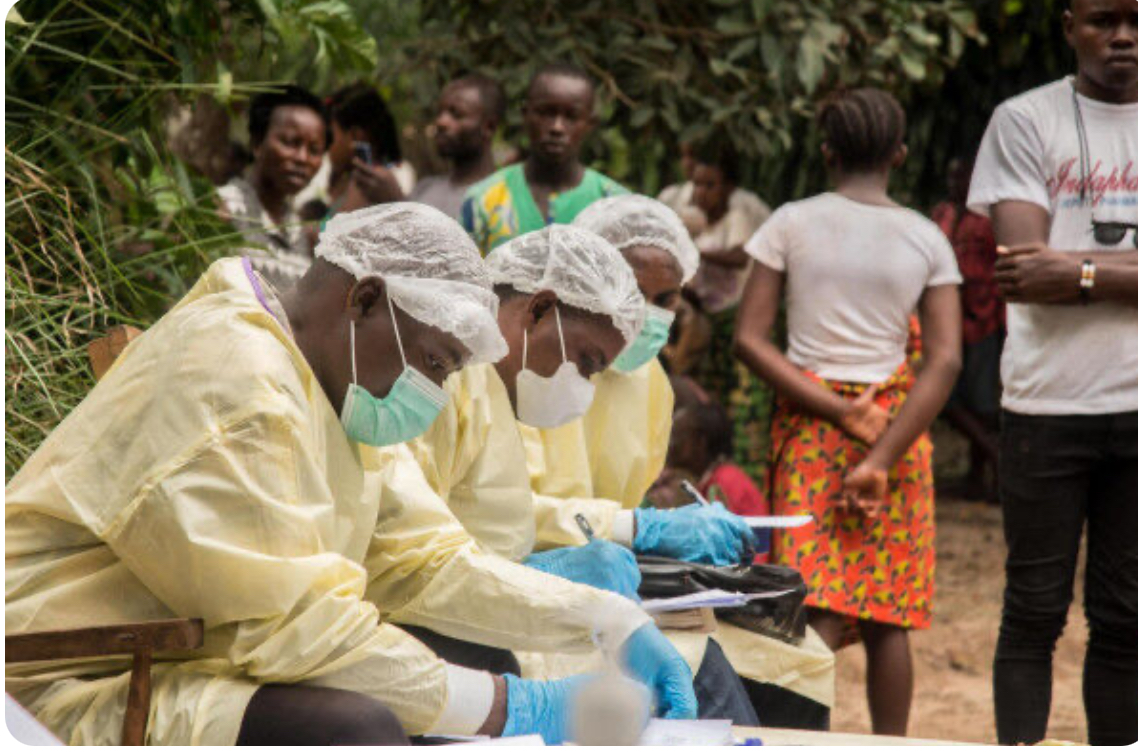A silent emergency
Every day across rural Nigeria and Africa, countless lives are lost—not to war or disasters, but to something far more preventable- a lack of basic healthcare access.
In villages tucked away in the heart of Nigeria’s vast countryside, people fight for survival against diseases that should not be death sentences. A malaria infection should not claim a child’s life. A pregnant woman should not die in labour due to the absence of a skilled health worker. A simple vaccine should not be out of reach for infants. And yet, this is the daily reality for millions.
According to recent studies, an estimated 253,000 people die annually in Nigeria due to inadequate healthcare access. The 2023 report by the Nigerian Primary Health Care Development Agency (NPHCDA) highlights an unsettling truth:
Over 60 per cent of Nigeria’s rural population lacks access to functional primary healthcare centers.
Many of these facilities are either understaffed or lack basic amenities like electricity, clean water, or essential medicines.
Preventable deaths from malaria, typhoid, and diarrheal diseases remain rampant.
While urban areas witness rapid medical advancements, rural communities are left behind, suffering a silent crisis that continues to claim lives year after year.
The disturbing reality of rural healthcare
Despite global progress in medicine and technology, Africa—especially rural Nigeria—grapples with healthcare access issues that date back decades. While issues like insecurity, unemployment, and poor infrastructure dominate political discussions, healthcare remains a neglected emergency that affects millions across all demographics.
Nigeria’s 2023–24 Demographic and Health Survey (NDHS) presents deeply troubling data on infant and child mortality:
Neonatal mortality (deaths within the first 28 days of life) peaked in Kano, with 59 deaths per 1,000 live births.
Infant mortality (before the first birthday) was highest in Kebbi, reaching 90 deaths per 1,000 live births.
Under-five mortality soared to 161 deaths per 1,000 in Jigawa.
These are not just cold statistics. They represent real people—babies, mothers, fathers, families—lost to causes we know how to prevent.
Factors contributing to the crisis include:
Lack of basic healthcare infrastructure:
Many rural communities do not have functioning hospitals or clinics. Where facilities exist, they are often:
Underfunded—many have little to no government support.
Understaffed—with too few trained health professionals available.
Underequipped—lacking essential drugs, ambulances, electricity, and clean water.
Cost barriers: Healthcare is too expensive
Even where healthcare exists, the rural poor simply cannot afford it. With over 40 per cent of Nigerians living below the poverty line, medical expenses often go ignored until an emergency strikes—when it may be too late.
Education and health awareness
Health isn’t just about hospitals—it’s about knowledge. Many diseases could be prevented through proper education on:
Nutrition and balanced diets, basic sanitation and hygiene, the importance of vaccinations, family planning and maternal care. Yet health education is lacking in many rural areas, leading to avoidable deaths.
Skilled healthcare workers are leaving rural areas, doctors and nurses prefer to work in urban areas, where wages are higher and living conditions are better. Thousands migrate abroad, leaving behind critical gaps in the workforce.
Lessons from successful global healthcare models
Despite these challenges, there are solutions—and we can learn from countries that have successfully improved rural healthcare.
Brazil’s family health programme
A team-based approach, where doctors, nurses, and community health workers are assigned to specific neighborhoods.
Personalised follow-ups ensure early intervention before illness escalates.
Focus on preventive care, significantly reducing infant mortality rates.
Rwanda’s community-based health insurance (CBHI)
A government-supported health insurance scheme covering even the poorest citizens.
Funded through government subsidies and community contributions, making healthcare affordable for all.
Kenya’s mobile clinics
Fully equipped mobile clinics travel to remote villages.
Doctors visit communities instead of waiting for patients to come to them.
These models prove that with strong policies, funding, and partnerships, healthcare can reach rural populations effectively.
Urgent action needed: What must be done if Nigeria is to overcome its rural healthcare crisis: is, we must rethink how we work together.
Invest in primary healthcare centers to ensure basic amenities like electricity, water, and essential medicines.
Expand the healthcare workforce—train and deploy more community health workers.
Leverage technology—telemedicine can connect rural patients to doctors in major hospitals.
Strengthen healthcare education—awareness programs must teach rural families about disease prevention.
Encourage the private sector to commit—beyond donations, businesses must fund long-term healthcare projects.
A call to action: Healthcare must be a right, not a privilege
This crisis is bigger than statistics. It is about real lives—mothers lost during childbirth, children battling preventable diseases, families suffering in silence because the healthcare system fails them.
We can no longer afford to wait. The time to act is now.
Government, private organisations, community leaders, and individuals all have a role in reversing this crisis.
Policymakers must prioritise healthcare funding.
Healthcare professionals must bring services to rural areas.
The private sector must shift from charity to investment.
Every Nigerian must demand better healthcare access.
This crisis will not fix itself—but collective action can.
Healthcare is not a privilege—it is a fundamental right.
It’s time to make that a reality.
Credit:The Guardian

